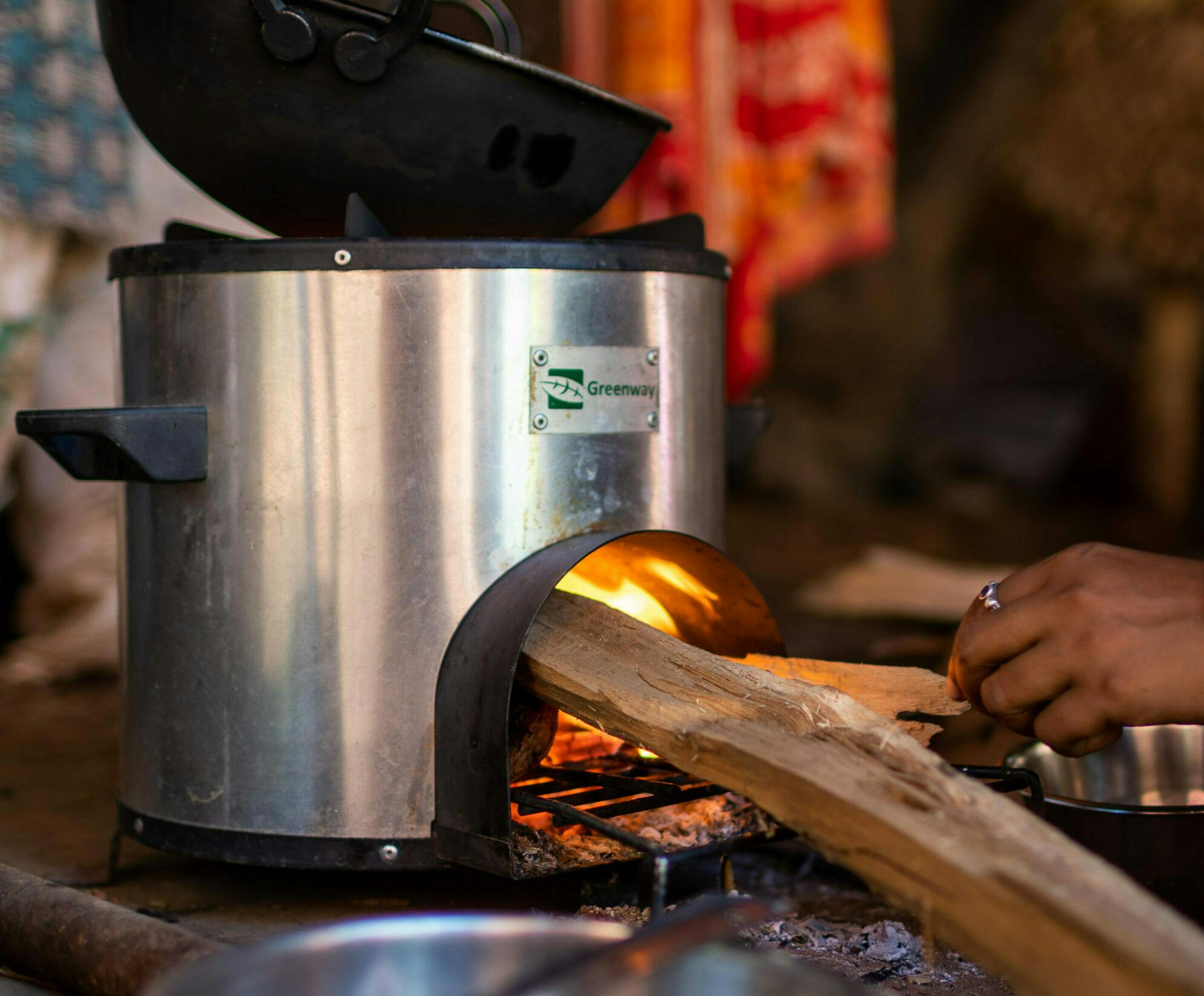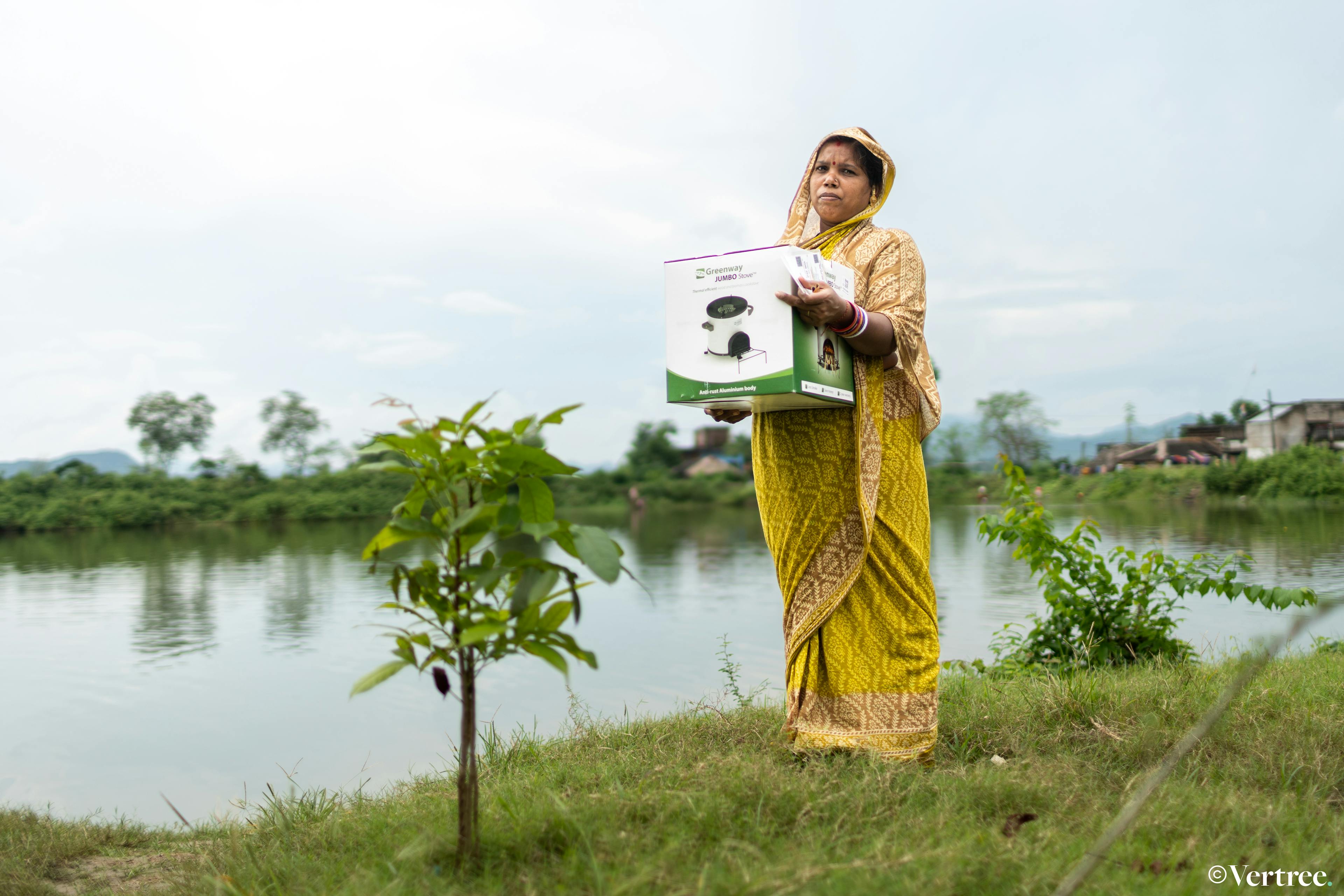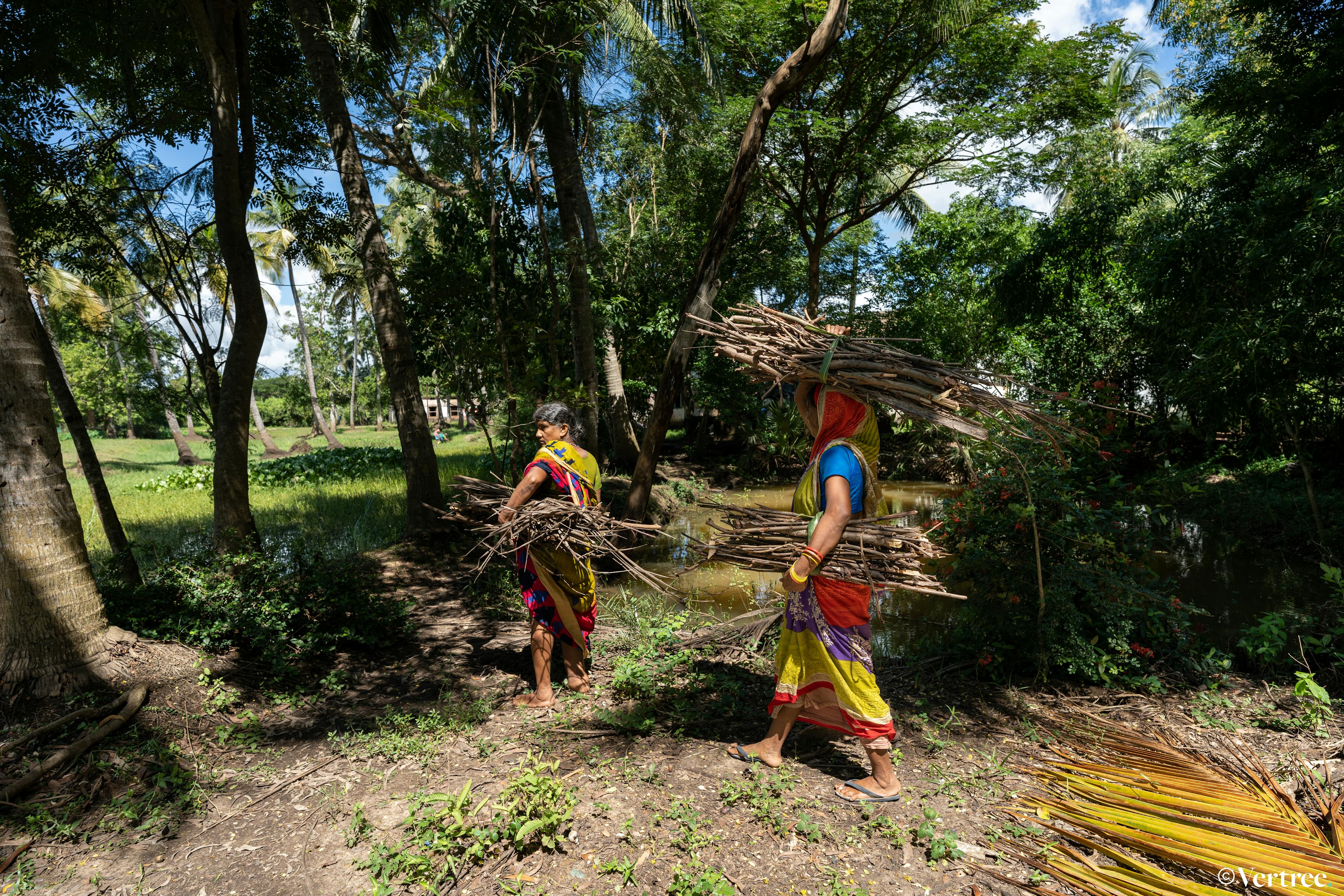Tackling the burning issue of cleaner cooking


According to the World Health Organization (WHO) 2.4 billion people worldwide still cook using traditional open fires and inefficient cookstoves. This leaves them vulnerable to indoor air pollution and at risk of noncommunicable respiratory diseases. It is estimated that household pollution was responsible for 3.2 million premature deaths per year in 2020[1].
Women are most likely to be affected by the health impacts at home, but also more likely to be responsible for the burdensome task of collecting wood fuel to feed these stoves. Consequently, there is less time to focus on other revenue generating activities, which ultimately means less time for their own personal development.
Vertree and its implementation partner on the ground in India, have a vision to tackle these issues and ensure that women in rural communities are the ones who benefit most.
Odisha is a remote rural village in one of India’s least developed states where the community has limited access to alternative cooking methods.
Each family in the project area consumes on average 3.9kg of wood each day cooking meals, making tea, preparing animal feed and processing crops. This wood is burned inside the homes in inefficient open fires.
The project aims to distribute 500,000 high-efficiency cookstoves which will benefit over 2 million individuals in the locality. The stoves are around 3 times more efficient than traditional wood burning stoves and they are portable so they can be used outside, freeing the home from dangerous indoor pollutants.
The “Greenway” stoves are a well-known and popular brand in India but too expensive for these residents were it not for the substantial subsidy that the project and carbon market finance facilitate.


The project is focused on the rural community of Odisha which is selected on the basis of need. Local communities here have less access to alternative and more efficient methods of cooking, ensuring that this project is delivering positive impact.
One-to-one advice and support is provided to ensure the effective use of the stove, with the stoves delivered direct to each village and individual users.
The project samples users to measure how much firewood is saved in order to understand the impacts been made as accurately as possible.
The proportion of fuel wood which would be classified as renewable (i.e biomass that naturally replenishes itself) is deducted from any emissions avoidance calculation and the stove efficiency over time is accounted for and tracked.
The hope is that the project can achieve it’s target of 500,000 cookstoves and continue to deliver positive benefits for the community of Odisha in the years to come.
If you are interested in supporting this project or finding out more, please contact sales@vertree.earth
© Photography by Enric Català Contreras